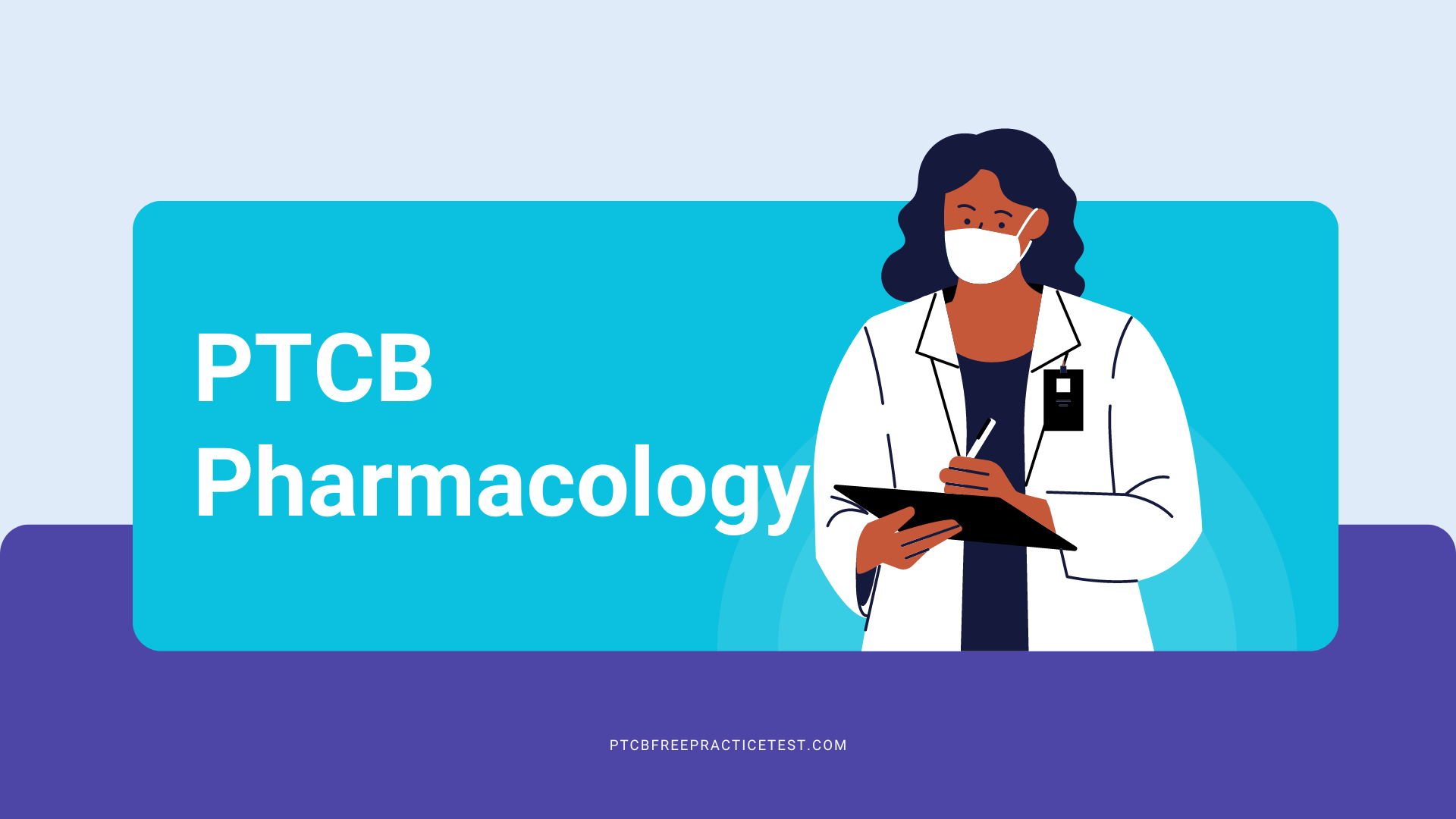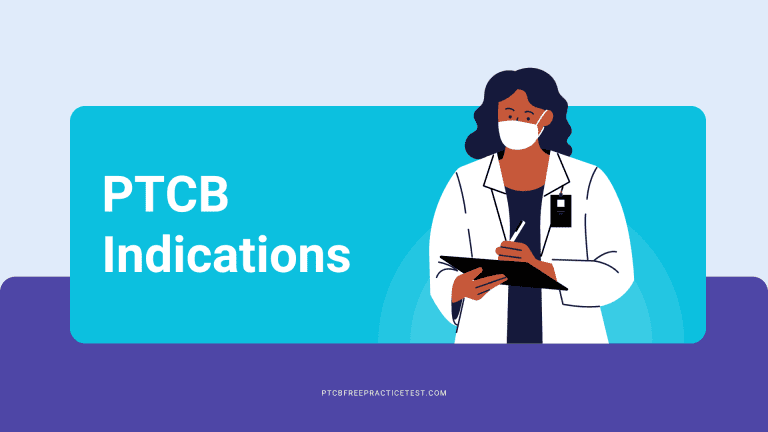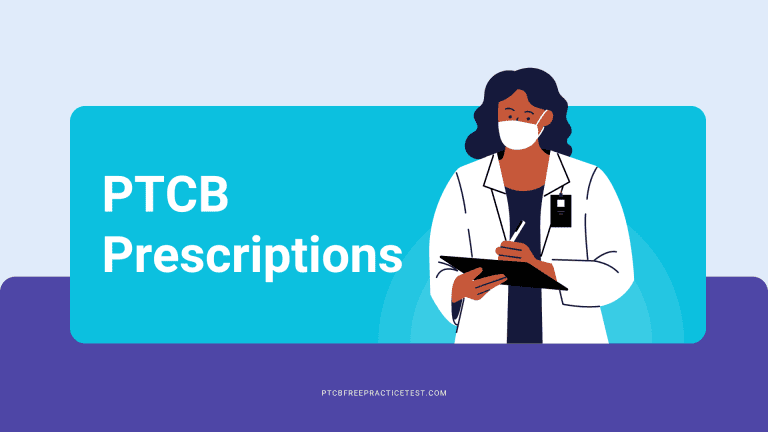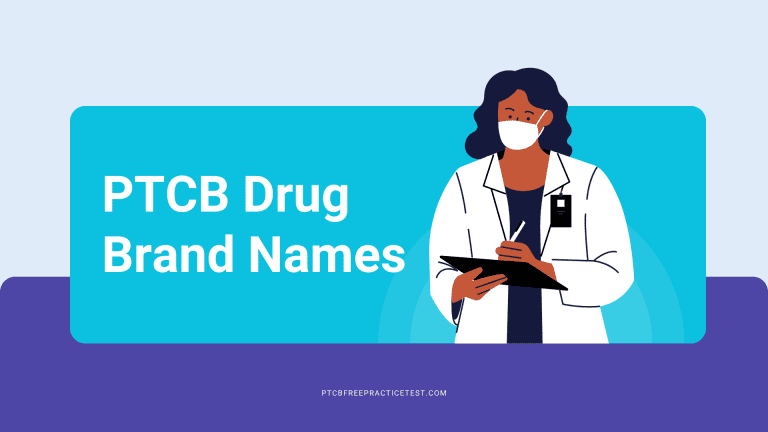Book Appointment Now

PTCB Pharmacology Practice Test
Welcome to the PTCB Pharmacology Practice Test!
This practice test is designed to help you prepare for the Pharmacy Technician Certification Board (PTCB) exam by testing your knowledge of pharmacology. The questions cover various topics including drug classifications, mechanisms of action, therapeutic uses, side effects, and key concepts related to medication administration and patient care.
Four answer options follow each question, and the correct answer is provided to help you assess your understanding and identify areas where you may need further study. This practice test is a valuable tool to gauge your readiness and build your confidence for the actual exam.
As you work through the questions, take your time to consider each answer carefully. After completing the test, review the questions and answers to reinforce your learning and ensure you have a solid grasp of the material.
Good luck, and keep up the hard work as you prepare to become a certified pharmacy technician!
PTCB Pharmacology Practice
Results
Congratulations! You’ve Passed the Practice Test!
Well done! Your hard work and dedication have paid off. Passing this practice test demonstrates your strong understanding of pharmacology concepts and prepares you well for the PTCB exam. Here are a few tips to keep in mind as you continue your preparation:
- Review Your Strengths: Focus on the areas where you scored well to reinforce your knowledge and ensure you maintain those strengths.
- Identify Weaknesses: Look at the questions you got wrong and review those topics to improve your understanding and performance.
- Practice More: Continue taking practice tests to build confidence and identify any remaining gaps in your knowledge.
- Stay Consistent: Keep a consistent study schedule leading up to the actual exam date.
Keep up the great work, and good luck on your journey to becoming a certified pharmacy technician!
Don’t Give Up! Review and Try Again.
It looks like you didn’t pass this practice test, but don’t get discouraged. Every mistake is an opportunity to learn and improve. Here are some steps to help you get back on track:
- Analyze Your Mistakes: Go through the questions you got wrong and understand why. Review the correct answers and explanations to learn from your mistakes.
- Focus on Weak Areas: Identify the topics where you struggled the most and allocate more study time to those areas.
- Seek Help: If certain concepts are challenging, consider seeking help from a tutor, joining a study group, or using additional resources like textbooks or online tutorials.
- Practice Regularly: Take practice tests to build confidence and track progress. Each test you take will help reinforce your knowledge and improve your skills.
- Stay Positive: Remember, persistence is key. Keep a positive attitude and stay motivated. With continued effort and determination, you can improve and pass the test.
Don’t give up! Keep studying, and you’ll see progress. Good luck on your next attempt!
#1. What side effect is associated with Levaquin?
#2. What is an example of a systemic adverse reaction to a vaccine?
#3. What is the primary use of clopidogrel?
#4. Which of the following is an antidiabetic medication that is classified as a sulfonylurea?
#5. What drug classes does the combo med Ciprodex belong to?
#6. What is the brand name of levofloxacin?
#7. Aminophylline is chemically similar to:
#8. What is the primary use of the drug spironolactone?
#9. Mr. Holmes is scheduled to receive a live vaccine. But the pharmacist tells him he must wait 3 to 11 months before the vaccine can be administered. This means Mr. Holmes recently received:
#10. Which medication is used to treat bacterial infections and belongs to the class of macrolide antibiotics?
#11. What is a primary function of a medication reconciliation technician?
#12. What is the therapeutic class of the drug Sertraline?
#13. Which of the following medications is an HMG-CoA reductase inhibitor?
#14. Which drug is a calcium channel blocker?
#15. Mr. McBee has asthma and uses albuterol occasionally. Albuterol is a bronchodilator, which means that it:
#16. What is a vaccine?
#17. What is the brand name of the medication atorvastatin?
#18. What is the major effect of Vitamin K?
#19. What is the brand name for fexofenadine?
#20. Metformin is commonly used to treat which condition?
#21. What is the brand name for brimonidine eye drops?
#22. What is the mechanism of action of omeprazole?
#23. Dr. Fanoli orders a tobramycin IV for Mrs. Layne. What lab value will the pharmacist be most concerned about?
#24. What is the generic name for the brand drug Prozac?
#25. Levothyroxine is used to treat which condition?
#26. Which medication is used as an anticoagulant?
#27. What vitamin is used in prenatal care to prevent birth defects?
#28. What is the mechanism of action for insulin in the treatment of diabetes?
#29. Which of the following is a side effect of opioid analgesics?
#30. What is the generic name for Lamisil?
#31. Which drug is used to treat asthma by acting as a bronchodilator?
#32. What class of drug is montelukast?
#33. Mr. Burns is purchasing OTC minoxidil. What condition is he treating?
#34. Which of the following drugs is used to treat Parkinson’s disease?
#35. Which medication is an antipsychotic used to treat schizophrenia?
#36. Which of the following drugs is classified as an ACE inhibitor?
#37. What is the generic name for the brand drug Lipitor?
#38. Which of the following is an SSRI antidepressant?
#39. Which drug is classified as a benzodiazepine?
#40. Which number represents the systolic number – 110/70
#41. Ms. Jensen is prescribed Flovent HFA for her asthma. Flovent HFA represents an important class of:
#42. What is the primary indication for the medication furosemide?
#43. What type of vitamins (fat or water soluble) may be stored in the body for up to six months?
#44. Which of these medications is commonly prescribed to treat high cholesterol?
#45. Which medication is commonly used to treat GERD?
#46. Which medication is a beta-blocker used to treat hypertension?
#47. What is the major effect of Vitamin D?
#48. Which drug is used to manage and prevent gout attacks?
#49. Which of the following medications is used as an antiemetic?
#50. Which of the following medications is a loop diuretic?
Study Tips for PTCB Pharmacology Exam
To maximize your study efforts and ensure you are well-prepared for the PTCB Pharmacology exam, here are some helpful study tips:
- Create a Study Schedule: Allocate specific times each day for studying. Consistency is key to retaining information.
- Use Flashcards: Flashcards are a great way to memorize drug names, classifications, and mechanisms of action. Use apps or physical cards for regular review.
- Join Study Groups: Collaborating with peers can provide different perspectives and help reinforce learning through discussion and explanation.
- Take Practice Tests: Regular practice tests help you become familiar with the format and timing of the exam. They also highlight areas where you need more focus.
- Review Study Guides: Comprehensive study guides and textbooks can provide in-depth knowledge and clarify complex topics.
- Stay Updated: Pharmacology is an ever-evolving field. Stay updated on new medications, guidelines, and best practices.
- Focus on Weak Areas: Spend extra time on topics that you find challenging. Use additional resources or seek help from a tutor if necessary.
- Healthy Study Habits: Get enough sleep, eat healthy, and take regular breaks to keep your mind fresh and focused.

Founder of the PTCBFreePracticeTest.com.







